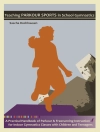In ‘Health and Education, ‘ Charles Kingsley presents a compelling exploration of the interdependence between physical well-being and intellectual development. Written during the Victorian era, the book merges scientific inquiry with a vibrant prose style that reflects Kingsley’s passion for social reform and holistic education. The narrative oscillates between empirical evidence and philosophical musings, drawing on contemporary advances in health science while advocating for a more enlightened approach to education that integrates moral and physical training. Kingsley’s work can be situated within the broader context of the Victorian response to industrialization, emphasizing the necessity of nurturing both body and mind. Charles Kingsley, a noted novelist, historian, and social activist, was deeply influenced by his experiences as an Anglican priest and his commitment to addressing societal inequalities. His engagement with the emerging fields of physiology and public health, along with his passion for improving the conditions of the working class, fueled his mission to promote well-rounded education. These themes resonate throughout ‘Health and Education, ‘ making it a vital contribution to discussions about human development in his time and beyond. This book is highly recommended for educators, health professionals, and anyone interested in the intersection of wellness and learning. Kingsley’s insights remain pertinent today, encouraging readers to reflect on the holistic formation of individuals and the importance of fostering environments conducive to both health and intellectual growth.
关于作者
Charles Kingsley (1819-1875) was a man of letters whose impact extended beyond the literary world into social reform and theological debate. An influential member of the Victorian era, Kingsley wore various hats as a novelist, a priest in the Church of England, an educator, and a historian. He is perhaps best known for his work ‘The Water-Babies, ‘ a fairy tale that intertwines themes of Christian redemption with social reform, and for ‘Westward Ho!, ‘ an historical novel that instilled a sense of national pride and adventure in the heart of Victorian England.
Kingsley’s passion for social reform was closely tied to his literary output. His concerns with public health and education, influenced by the Chartist movement and his Christian faith, were vividly presented in various writings including ‘Health and Education’ (1874), which expounded his beliefs that the physical condition of the poor directly affected their moral and spiritual health. The book is an exemplar of Kingsley’s broader literary and ideological preoccupation with the intersection of science, religion, and education in promoting societal well-being. His style often blended didacticism with a rich use of natural imagery, and his advocacy for Christian Socialism framed much of his writing and public speaking. The degree to which Kingsley’s work spurred Victorian social consciousness and reforms remains a subject of scholarly interest today.












